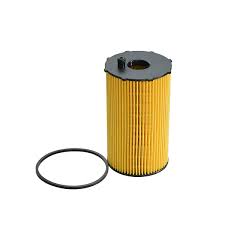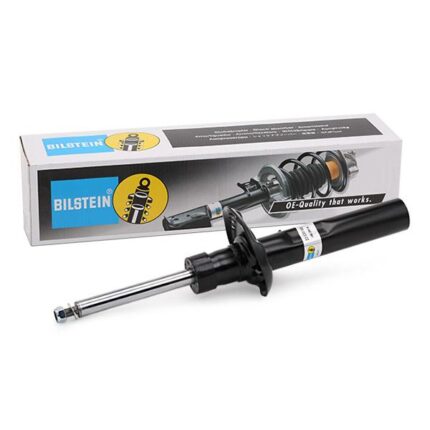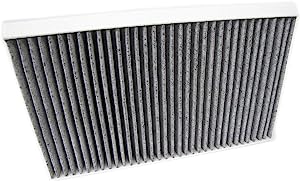-10%
Get Cabin Air/Pollen Filter Land Rover Discovery 3, Discovery 4 Range Rover Sport LR023977, JKR500020, JKR500010
Cabin filters, also known as pollen filters or cabin air filters, are essential components of a vehicle’s HVAC (heating, ventilation, and air conditioning) system. They play a crucial role in improving air quality inside the vehicle cabin by filtering out airborne contaminants and pollutants. Understanding the benefits of cabin filters and recognizing the signs indicating the need for replacement are essential for maintaining optimal air quality, comfort, and overall vehicle health.
Benefits of Cabin Filters:
- Improved Air Quality: Cabin filters effectively trap and remove airborne contaminants such as dust, pollen, mold spores, bacteria, and exhaust fumes from the outside air before it enters the vehicle cabin. By reducing the concentration of pollutants, cabin filters help improve air quality, creating a healthier and more comfortable environment for passengers.
- Allergy Relief: For individuals with allergies or respiratory sensitivities, cabin filters provide significant relief by reducing exposure to allergens such as pollen, dust, and mold spores. By removing these airborne particles from the incoming air, cabin filters help alleviate allergy symptoms and improve overall respiratory health during travel.
- Protection Against Odors: Cabin filters can also help neutralize unpleasant odors from outside sources, such as vehicle exhaust, industrial pollutants, or agricultural emissions. By capturing odor-causing particles and contaminants, cabin filters help maintain a fresh and odor-free interior environment for occupants.
- Prevention of Interior Contamination: In addition to filtering external pollutants, cabin filters also prevent interior contamination by trapping dust, dirt, and debris generated from within the vehicle. This helps keep the HVAC system clean and free from contaminants, prolonging its lifespan and reducing the need for maintenance or repairs.
- Enhanced HVAC System Performance: Clean cabin filters allow for unrestricted airflow through the HVAC system, ensuring efficient operation of heating, ventilation, and air conditioning components. Proper airflow promotes consistent temperature control, faster defrosting in cold weather, and improved overall HVAC system performance.
- Reduction of Window Fogging: By maintaining optimal airflow and ventilation, cabin filters help prevent condensation and reduce the likelihood of window fogging or misting, especially during humid or rainy conditions. Clear visibility enhances driver safety and comfort, particularly during inclement weather.
- Extended Longevity of Interior Components: Clean air filtered through cabin filters helps protect interior surfaces, including dashboard, upholstery, and carpeting, from dust and debris accumulation. By reducing the buildup of dirt and particles, cabin filters contribute to preserving the appearance and longevity of interior components, enhancing the vehicle’s overall resale value.
Signs a Car Needs a Cabin Filter Replacement:
- Reduced Airflow: A noticeable decrease in airflow from the HVAC vents may indicate a clogged or dirty cabin filter obstructing the airflow. Restricted airflow can diminish the effectiveness of heating, ventilation, and air conditioning systems, resulting in reduced comfort and temperature control inside the vehicle cabin.
- Unpleasant Odors: Persistent or foul odors emanating from the HVAC vents, especially when the air conditioning or heating is activated, may suggest a contaminated or deteriorated cabin filter. A dirty or clogged filter can harbor odor-causing particles, resulting in musty or unpleasant smells inside the vehicle cabin.
- Increased Allergy Symptoms: If occupants experience exacerbated allergy symptoms such as sneezing, coughing, or watery eyes while inside the vehicle, it may indicate a problem with the cabin filter. A dirty or ineffective filter can allow allergens such as pollen, dust, and mold spores to enter the cabin, triggering allergic reactions in sensitive individuals.
- Excessive Dust or Dirt Inside the Cabin: Visible accumulation of dust, dirt, or debris on interior surfaces, including dashboard, seats, and vents, may suggest inadequate filtration by the cabin filter. A dirty or clogged filter fails to effectively trap airborne particles, allowing them to settle and accumulate inside the vehicle cabin.
- HVAC System Malfunctions: Malfunctions or irregularities in the operation of the HVAC system, such as unusual noises, temperature fluctuations, or inconsistent airflow, may be indicative of a compromised cabin filter. A dirty or obstructed filter can strain HVAC components, leading to reduced performance and potential system failures.
- Visible Mold or Mildew Growth: If mold or mildew growth is observed on or around the HVAC vents or cabin filter housing, it indicates excessive moisture and poor air circulation inside the HVAC system. A damp or contaminated cabin filter can serve as a breeding ground for mold and mildew, posing health risks to occupants and requiring immediate replacement.
- Long Service Interval: Cabin filters have recommended service intervals specified by the vehicle manufacturer, typically ranging from 12,000 to 15,000 miles or every 12 to 18 months, depending on driving conditions and environmental factors. If the vehicle has exceeded the recommended service interval, it is advisable to inspect and replace the cabin filter as needed to ensure optimal air quality and HVAC system performance.
Follow us on Facebook For more parts.



